The details of how Whitehaven will switch over from Analogue to Digital are starting to come out.
 It’s quite an interesting approach that’s worthy of a little attention, especially as this will form the basis for the approach for the rest of the UK.
It’s quite an interesting approach that’s worthy of a little attention, especially as this will form the basis for the approach for the rest of the UK.
Lots of local press have already become involved in informing local residents about the forth coming changes.
This will be added to by sending a letter to each of the 25,000 households in the Whitehaven area to give them details. In there will be details of the Help Scheme for the over-75s, those with disabilities, and blind.
Those qualifying will benefit from a one-off subsidised fee of £40, unless the households receive income-related benefits, in which case assistance will be free.
Starting in May, the awareness of the TV watching residents of Whitehaven will be further raised with captions appearing on their current analogue channels, warning them of the impending switch off of the analogue channels and the need for them to change their equipment if they want to continue watching TV.
As announced, analogue BBC2 will be switched off on 17 October between 2-4 am, freeing up a chunk of analogue frequency for digital use.
The process is slightly more complicated than first appears, although the effect of the actions will remain the same.

Analogue ITV1 will be switched over to the frequency currently used by analogue BBC2, which will become unavailable.
This will leave ITV1’s frequency available to be used by the first digital mux, which will provide three full time stations BBC1, BBC2, BBC News 24, with CBBC and BBC Three sharing the same frequency, switching between the two at 7pm daily.
Summary – For the price of one analogue TV channel (ITV1), four digital TV channels will work in its place.
(BTW we think DigitalUK should be ashamed with themselves at referring to the date as October 17, they are after all a UK Government body. This is the UK and dates are referred to with the date _before_ the month. The UK isn’t the US)
During this time, ITV1 will slip a little from button 3 on their remotes to button 2 – previously occupied by BBC2. A possible source of some confusion for Whitehaven residents, but reducing it to a minimum.
Four weeks later, the other analogue channels will switch off, making space for ‘at least’ 18 channels including ITV2, E4, BBC Four and some digital radio channels all via their TV aerial. There are a number of channels that are available in other parts of the country that won’t be making it to Whitehaven (detailed three paragraphs in).
We’ll keep our eyes and ears open to monitor the success of the process.

 Sitting on the tube, opposite such an ad, I figured that there were only two possible companies which could be accused of controlling 80% of information on the Web; it could plausibly refer to either Internet Explorer’s market share (and would therefore be an advert for Firefox) or Google’s market share. Since I knew Mozilla wasn’t planning any advert like this, I assumed that it was a competitor to Google, and concluded it was probably Ask (since neither Yahoo or Microsoft would manage to think outside the box to such an extent). However, I dismissed that idea instantly as it seemed so unlikely that a well respected company would attempt such a pathetic campaign, and that therefore it must be some new search engine with far too much venture capital. By that point I had lost interest, and began examining the ventilation panel.
Sitting on the tube, opposite such an ad, I figured that there were only two possible companies which could be accused of controlling 80% of information on the Web; it could plausibly refer to either Internet Explorer’s market share (and would therefore be an advert for Firefox) or Google’s market share. Since I knew Mozilla wasn’t planning any advert like this, I assumed that it was a competitor to Google, and concluded it was probably Ask (since neither Yahoo or Microsoft would manage to think outside the box to such an extent). However, I dismissed that idea instantly as it seemed so unlikely that a well respected company would attempt such a pathetic campaign, and that therefore it must be some new search engine with far too much venture capital. By that point I had lost interest, and began examining the ventilation panel.
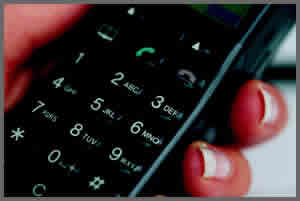 Ofcom has just announced that it will be carrying out an inquiry into the whole area.
Ofcom has just announced that it will be carrying out an inquiry into the whole area. The inquiry will be led by Richard Ayre, a former Deputy Chief Executive of BBC News. He is expected to receive extensive input from the premium rate services regulator, ICSTIS, who are already investigating a number of individual cases.
The inquiry will be led by Richard Ayre, a former Deputy Chief Executive of BBC News. He is expected to receive extensive input from the premium rate services regulator, ICSTIS, who are already investigating a number of individual cases.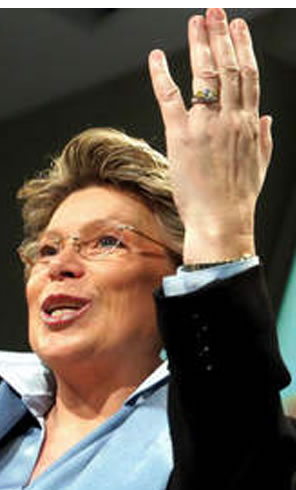 Her guidance to them is to settle on DVB-H (Digital Video Broadcasting for Handhelds), a European led development of the DVB-T (Television) standard that is throughout large areas of Europe.
Her guidance to them is to settle on DVB-H (Digital Video Broadcasting for Handhelds), a European led development of the DVB-T (Television) standard that is throughout large areas of Europe. Despite a
Despite a  HDForAll are a pressure group made up of TV manufacturers, retailers and public service broadcasters including DSGI, Samsung, Sony and Toshiba and BBC, ITV, Channel 4 and Five. They’re keen to remind people that there’s only a limited amount of time left to contact Ofcom to make their views known on auctioning off spectrum to the highest bidder. Background on this and how to respond are available on
HDForAll are a pressure group made up of TV manufacturers, retailers and public service broadcasters including DSGI, Samsung, Sony and Toshiba and BBC, ITV, Channel 4 and Five. They’re keen to remind people that there’s only a limited amount of time left to contact Ofcom to make their views known on auctioning off spectrum to the highest bidder. Background on this and how to respond are available on 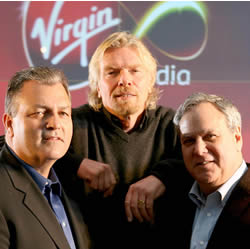 The upload speed will also be upped to 768Kbs, not exactly setting the uploading world alight, but better than a poke in the eye with a stick, non?
The upload speed will also be upped to 768Kbs, not exactly setting the uploading world alight, but better than a poke in the eye with a stick, non?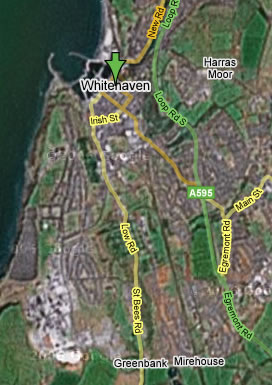 It’s quite an interesting approach that’s worthy of a little attention, especially as this will form the basis for the approach for the rest of the UK.
It’s quite an interesting approach that’s worthy of a little attention, especially as this will form the basis for the approach for the rest of the UK.
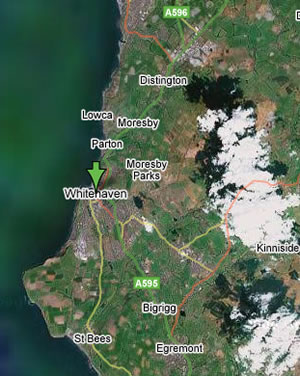 Back in June last year, we heard that
Back in June last year, we heard that  Sanity appears to have been reached by Vodafone, as they announce a flat-rate of €12/day for data in Europe – but only if accessed from “mobile-enable laptops” from 1 July 2007. It will replace their current per Megabyte service, giving what they say is “practically unlimited data usage,” which is actually up to 50Mb/day.
Sanity appears to have been reached by Vodafone, as they announce a flat-rate of €12/day for data in Europe – but only if accessed from “mobile-enable laptops” from 1 July 2007. It will replace their current per Megabyte service, giving what they say is “practically unlimited data usage,” which is actually up to 50Mb/day. The quarterly report snappily titled, Communications Market: Digital Television Progress Report, covering the fourth quarter of 2006 (October-December), shows the figures are up from 39% in the same period the previous year, and also from 44.7% in the Q3 2006.
The quarterly report snappily titled, Communications Market: Digital Television Progress Report, covering the fourth quarter of 2006 (October-December), shows the figures are up from 39% in the same period the previous year, and also from 44.7% in the Q3 2006.